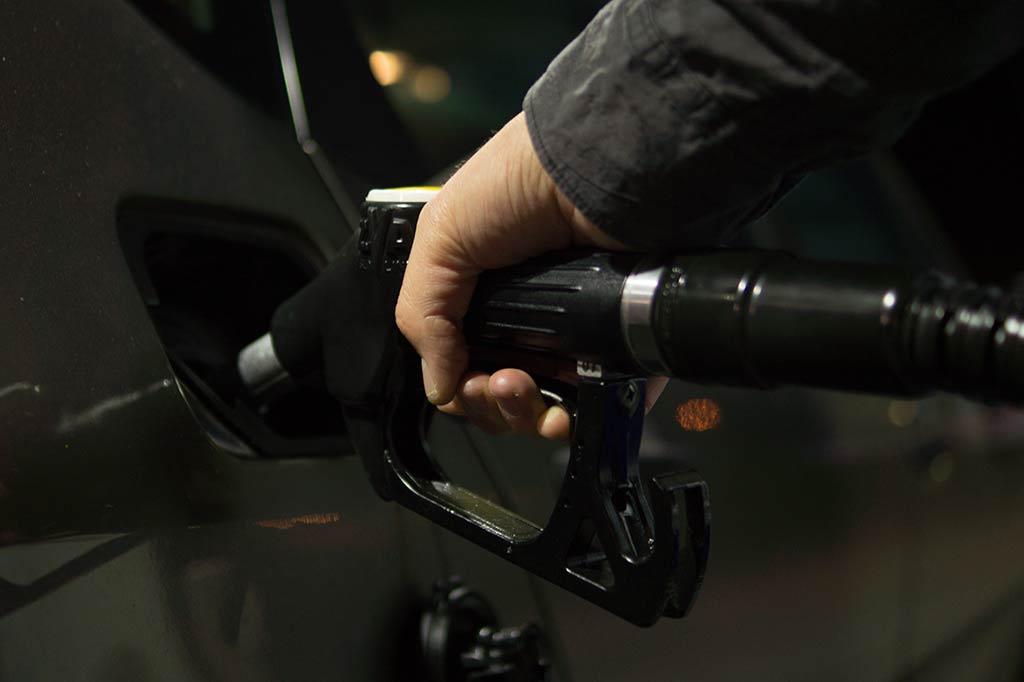
Every time you pull up to the gas station, you probably always notice that there are certain pumps or nozzles that say diesel. You also probably have no idea what that means, you just know that you should never ever put that fuel in your car instead of gasoline, and that it’s mostly big trucks and equipment that use it.
Well today’s your lucky day. After years and years of instinctively avoiding diesel fuel pumps, we’ll explain the actual difference between your car’s engine and diesel engines, as well as how the gas you put in your car differs from the fuel required by diesel engines.
At their core, both gas and diesel engines are pretty similar. They both convert chemical energy into mechanical and kinetic energy, and do so through the process of internal combustion. For this reason, they are both called internal combustion engines.
How Does a Gas Engine Work?
Internal combustion is the process by which fuel is mixed with air as it goes into the engine; that mixture is compressed internally inside the engine’s cylinders; and, at some point, the fuel ignites (combusts), driving a piston down and turning the crankshaft. The crankshaft is connected to the vehicle’s transmission and ultimately turns the wheels. The piston then moves up in the cylinder, pushing the burnt gases out of the engine and out the tailpipe as exhaust. This cycle repeats several times per second.
This process is essentially the same for both gas and diesel engines.
Where the two diverge, however, is in how the fuel ignites or combusts. In a gas engine, the air and fuel are compressed until, at a critical point in the timing of the engine cycle, a spark plug ignites the air-gas mixture.
What’s the Difference in a Diesel Engine?
In a diesel engine, on the other hand, there are no spark plugs. What it does is compress the diesel fuel and air together to the point until it combusts. Basically, the extreme compression generates enough heat that the mixture spontaneously combusts in a process known as “combustion ignition.”
This is due to the different chemical nature of diesel fuel as compared to gasoline. And in addition to allowing for combustion ignition, diesel fuel also packs a bit more of a punch in terms of energy per unit than gasoline (say, per gallon or liter). That’s why diesel cars are able to get mileage in the 30s, 40s, or 50s — or more — depending on the engine and vehicle type.
Powertrain Control Modules
All vehicles today have a powertrain control module or PCM. This component essentially serves as your car’s brain and is part of the reason why modern cars are so efficient and smart. What it does is manage your engine’s ignition system, fuel injection, emission system, mechanical positioning of the rotating assembly, exhaust system, transmission, and any other functions related to the operation of the engine and transmission.
Because diesel and gasoline engines have different forms of combustion, they therefore have different types of fuel injection, and so the PCM operates a bit differently in each engine. This is one of the major differences between gasoline and diesel engines: the majority of gas engines use a carburetor, while diesel engines use direct fuel injection. With a carburetor, air and fuel are mixed together prior to the fuel entering the cylinder, while with direct injection—as the name implies—the diesel fuel is injected directly into the cylinder.
Diesel Engine PCM Units
In a diesel engine, the PCM controls this direct injection process. This is especially important when starting a diesel engine in cold weather, as the compression process required for combustion may not raise the air to a high enough temperature to ignite the fuel. The PCM can sense the ambient air temperature and adjusts the timing of the engine in cold weather so the injector sprays the fuel at a later time. The air in the cylinder is compressed more, creating more heat, which aids in starting.
Gas Engine PCM Units
In a gas engine, the PCM doesn’t have to worry about air temperatures not being high enough for combustion injection because they have sparkplugs to ignite the air-fuel mixture. What it does have to worry about, however, is controlling the spark ignition process of the gas engine. The car’s computer controls the ratio of air and fuel, the timing of the spark, etc.
Conclusion
Beyond those things, PCMs in both diesel and gas engines essentially do the same job. They control the timing and make-up of the combustion process. Because the processes are slightly different, the PCMs for each will have different programming and most likely have some different problem codes.
For this reason, it is important to know what type of PCM your engine requires. If you are looking for a PCM for your Dodge diesel truck, you can see our wide selection of options here.
Diesel and gas engines might have slightly different processes, but both are designed to get you from A to B. Just remember never to put the fuel of one into the engine of the other!
